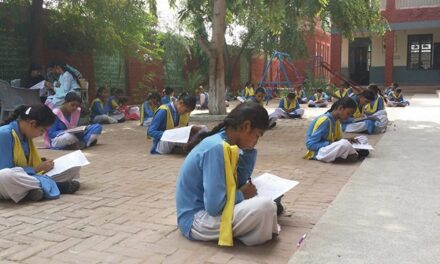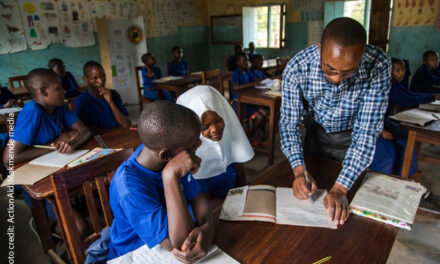Interview with Nalini Boodhoo, co-convenor for sub-theme on Enabling Teachers
So much is always expected of teachers – no matter where around the globe. However, the context in which teachers are educated and in which they work in low-income countries often makes it more challenging to ensure the best possible cognitive outcomes for students than in higher-income countries.
I feel that Enabling Teachers as a theme offers a number of opportunities for conference presenters to describe and analyse contextual issues and discuss how and why initiatives aimed at developing teachers and their practice prove either effective or ineffective. In so doing (and this is what excites me), drawing implications from the research that is presented will help us as a community to consider degrees and subtleties of variation across contexts and to better (re)consider the complexity of enabling teachers in particular countries or regions.
There might be a better chance to weigh up how pre-service teacher education programmes and continuing professional development (CPD) programmes can be sustained and become self-perpetuating – without donor aid, for example. Donor aid can be inconsistent, and the interventions which particular agencies try to introduce are sometimes inappropriate for a number of reasons. So what is there to say about the specificity of teacher education pedagogy? Key questions for me revolve around interrogating the theoretical frameworks upon which teacher education programmes are predicated? How do these align with the prevailing education systems in each context, and the goals of achieving some of the SDGs, like quality education which is inclusive and equitable?
I hope some papers submitted for the conference theme will focus on programme evaluation – also the conceptual issues as regards particular methodologies/methods related to teacher education and lesson delivery. Motivational issues are also important – if papers can go beyond technical rationality (often offered up through policy borrowing from other countries) to highlight the ethical and moral dilemmas that teachers experience in their working environments, this will offer insights into what helps or hinders bringing about sustainable change.
If presenters can unpick the overarching policy sociology of their context, this is likely to reveal the extent to which we need to take a multidimensional approach to develop and enact sustainable interventions which empower teachers and also teacher educators.
Nalini is co-convening the sub-theme with Sharon Tao who has also given an interview on Enabling Teachers







I find this very stimulating as well as valuable in the context of the work we are doing in Bangladesh. When teachers start looking at their work in an inquiry-orineted way, problematising their everyday normal work and then share it with other teachers, it makes their work much more meaningful and worthwhile. in my view it’s the questioning, reflecting, and sharing that make teachers want to keep doing it. in this whole effort, it’s the learner they are addressing, so learning gets emphasised.
Ohh yes. Its is motivating indeed
Its so good to appreciate some of the circumstances under which some ofour teachers operate under to have our children educated. Thanks for the good work. keep on keeping on.
Thanks for Articles.